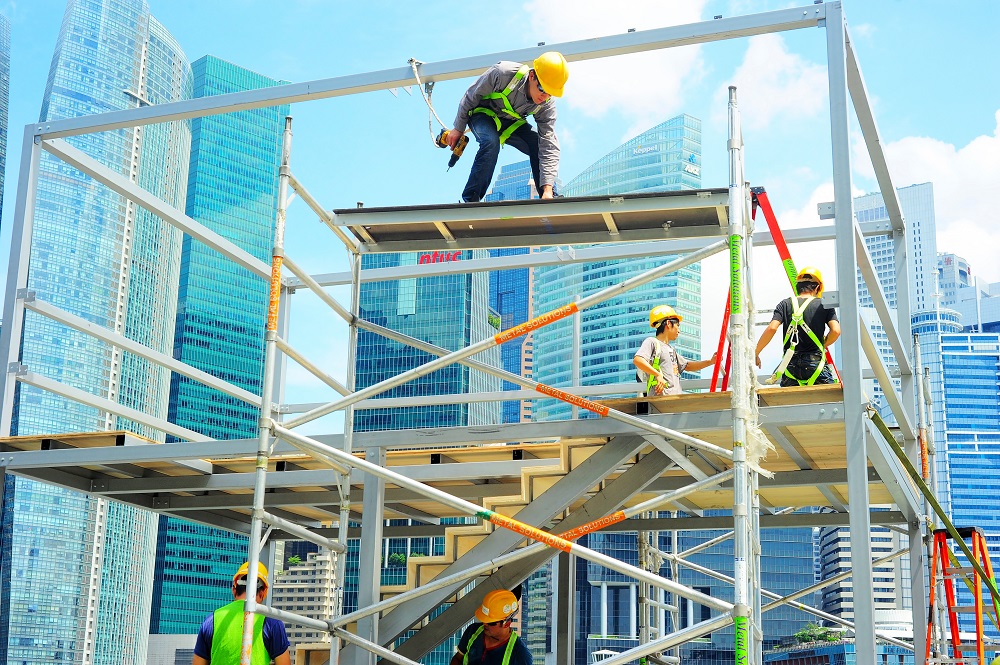Slowing growth, rising unemployment, and increased inequality have fuelled a rise in populist anti-globalisation sentiment, especially in Western countries – as demonstrated by Brexit and last year’s US Presidential Election. As ASEAN celebrates its golden jubilee, more attention needs to be paid to the people of ASEAN. The grouping needs to ensure that the benefits of economic integration are distributed equitably and fairly, including among the region’s migrant workers.
Unskilled and lower-skilled workers make up 87 per cent of the migrant workers in ASEAN. Between 1990 and 2013, the number of intra-ASEAN migrant workers increased from 1.5 million to 6.8 million, due to a number of factors, including insufficient job creation in sending countries, and the need for foreign labour in receiving countries.
There have been moves to create freer flows of labour across ASEAN under the ASEAN Economic Community (AEC). However, the AEC only facilitates labour flows for eight skilled professions, such as engineers, architects, doctors, nurses, lawyers, and accountants – skilled professions were prioritised in order to provide professionals with more opportunities to succeed and to benefit businesses, including small and medium enterprises (SMEs).
Unskilled and lower-skilled migrant workers remain subject to unpredictable government policies, as there is no common agreement between all ASEAN member states regarding the treatment of migrant workers. Many are undocumented as a result of long waiting times and high costs associated with formal migration. In July, Malaysia carried out crackdowns on undocumented migrant labour, resulting in thousands of arrests and deportations. Reports say many undocumented migrants also left Thailand in July, ahead of tightening of the country’s labour regulations.
The shared borders between numerous ASEAN states makes undocumented border crossing easy. But undocumented workers are often taken advantage of by brokers and employers. They are vulnerable due to their ambiguous legal status, resulting in human trafficking and other abuses. Furthermore, because these workers are undocumented, it is difficult for local authorities to reach out and provide any sort of help for them. Undocumented workers are also unable to easily access public services.
Improving welfare for migrant workers
During their recent dialogue in August, lawmakers in the ASEAN Parliamentarians for Human Rights (APHR) group urged governments to do more to protect the basic rights and humanity of migrant workers. While migrant workers are integral to economic development, it is essential to remember that they are also people, who deserve to be treated with care and dignity rather than punitive policies.
A discussion paper by the Economic Research Institute for ASEAN and East Asia (ERIA) recommends that ASEAN build a framework under the AEC towards the free flow of lower-skilled workers within the region, as well as improvements to their productivity and social welfare. ERIA notes that employers must be held responsible and accountable for the well-being of their employees. An ASEAN-wide framework would improve the recruitment process for workers, reducing costs and time, resulting in more properly documented migrant workers and better welfare in receiving countries.
ASEAN’s migrant workers are a major contributor to the region’s economy, and help narrow the economic gap that exists amongst ASEAN states. Each year, billions of dollars in remittances are sent back by workers to their home countries, while receiving countries are able to sustain labour-intensive industries with the help of migrant workers. It is therefore crucial that the rights of these migrant workers be prioritised.
Sources
Migrant Workers in Asean: The Hidden and Neglected Workforce [ILO, 26 May 2015]
Parliamentarians come together to promote human rights in the context of trade [ASEAN Parliamentarians for Human Rights, 25 Aug 2017]
Improving the Regulatory and Support Environment for Migrant Workers for Greater Productivity, Competitiveness, and Social Welfare in ASEAN [ERIA Discussion Paper Series, Nov 2015]
Migration and Remittances in Asia and the Pacific [ADB, 18 Mar 2015]




